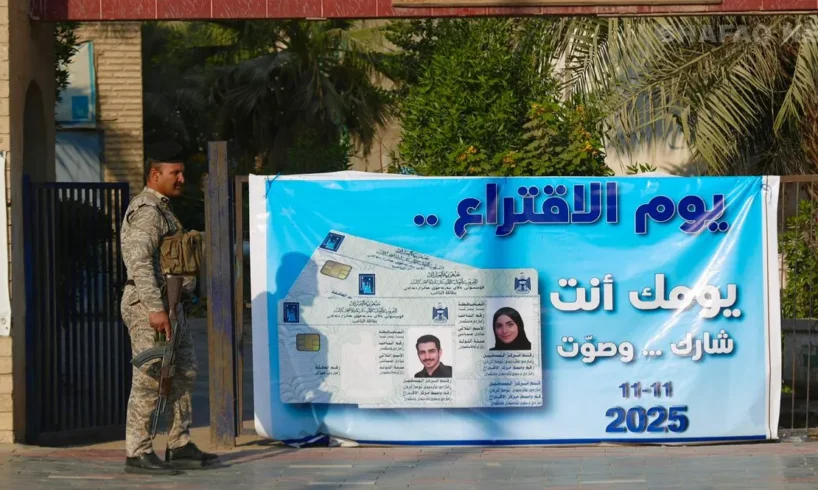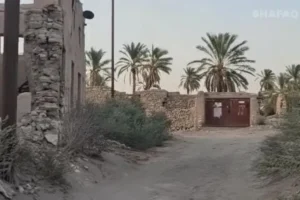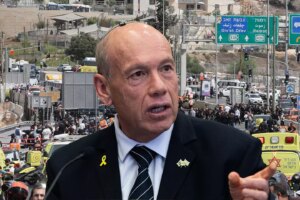
2025-11-08T21:56:14+00:00
font
Enable Reading Mode
A-
A
A+
Shafaq News
Amid escalating regional tensions and shifting geopolitical
dynamics, the upcoming Iraqi parliamentary elections on Tuesday, November 11,
have drawn intense attention from several Arab capitals, which view the vote as
a key test for Iraq’s stability and political direction.
Many observers across the Arab world describe the vote as a
pivotal moment for Iraq and the wider Middle East, where domestic political
dynamics intersect with regional rivalries. The elections come at a time of
rising tension between Iran and Israel and shifting balances of power
throughout the region.
Analysts agree that Iraq’s elections extend far beyond a
local political process — they represent a test of Baghdad’s ability to restore
internal stability and assert an independent national policy. Many express hope
that the polls will serve as a democratic milestone capable of rebuilding
public trust in governance, while others warn of possible external interference
aimed at reshaping Iraq’s political equilibrium.
Kurdish Participation and Electoral Impact
From Egypt, Ahmed Fouad Anwar, professor of Zionist Thought
at Alexandria University, told Shafaq News that “the entire region is in a
state of volatility and instability due to Israeli crimes affecting the Middle
East,” adding that Iraq’s elections “offer a chance to consolidate stability
through broad public participation.”
Anwar emphasized that “a high turnout is the real safeguard
against fraud. Low participation rates allow manipulation, while an informed
majority tends to vote rationally and beyond personal interests.”
He noted that if expectations of strong Kurdish turnout in
the Kurdistan Region are confirmed — while the Patriotic Shiite Movement (PSM)
led by Muqtada al-Sadr maintains its announced boycott — participation rates in
Baghdad could drop, influencing the composition of the next government.
“In Egypt, we hope these elections will serve as a
democratic model free of incitement or violence, and that Iraq will pass this
political test with maturity and stability,” Anwar concluded.
A Crossroads for Iraq’s Regional Alignments
Syrian political researcher Radhwan al-Atrash said Iraq now
stands “at a critical crossroads” between strengthening ties with Gulf Arab
states or maintaining its strategic alliance with Iran, particularly after the
regional shifts following the fall of the Syrian regime in December 2024 and
the subsequent realignment of regional coalitions.
Speaking to our agency, al-Atrash noted that “the United
States is reassessing its military and political footprint in the Middle East,
and Iraq is central to that recalibration amid intensifying competition with
Russia and China.”
He explained that the elections will reveal whether
“Iran-backed factions will continue to dominate Iraq’s political scene or if
movements seeking to distance Baghdad from Tehran’s influence can make tangible
gains.”
According to al-Atrash, this vote is “a credibility test for
Iraq’s political system” and could signal new directions in Baghdad’s regional
and international relations — particularly if the results favor greater Arab
engagement and reduced dependence on the Iranian axis.
Waning Iranian Influence
Lebanese political writer Amin Bashir argued that the region
is undergoing “a profound realignment” in which “there is an emerging
international consensus to curtail Iranian influence — possibly even to reform
or change the regime’s behavior altogether.”
He told Shafaq News that Iraq, like Lebanon and other
countries formerly under Iranian sway, is “experiencing a genuine shift toward
reclaiming its national decision-making.” He added that the upcoming elections
“will reflect this transformation and the changing balance of power.”
Bashir predicted a visible decline in Iran’s political
influence inside Iraq, “not only at the governmental level but also in the
erosion of armed control, paving the way for a new era of democratic practice
and stronger civilian, non-militant parties.”
Read more: The Battle for Iraq’s “Largest Bloc”: A Renewed Struggle over Power and Definition
US Pressure and Strategic Caution
Political analyst and international relations researcher
Hazem Ayad said the elections “are unlikely to produce major surprises in
Iraq’s internal balance of power,” yet they arrive “at a highly sensitive
moment” following months of confrontation between Iran and Israel and
escalating conflicts in Syria, Lebanon, Yemen, and Gaza.
Ayad told our agency that “US pressure on Iraq is mounting
across political, economic, and security fronts, making the elections a test of
the system’s resilience under external stress.”
The Jordanian analyst suggested that Washington could adopt
new measures after the results, including targeted sanctions or even limited
military actions against certain Iraqi factions. Ayad warned that the US may
attempt to impose a new reality to unsettle Iraq’s internal balance and provoke
instability after the vote.
“The coming phase will be extremely delicate,” he said,
urging Iraqi actors “to act with wisdom and restraint to prevent escalation and
preserve the country’s fragile stability.”
Read more: Iraq’s elections under a shrinking lens: international oversight fades away





